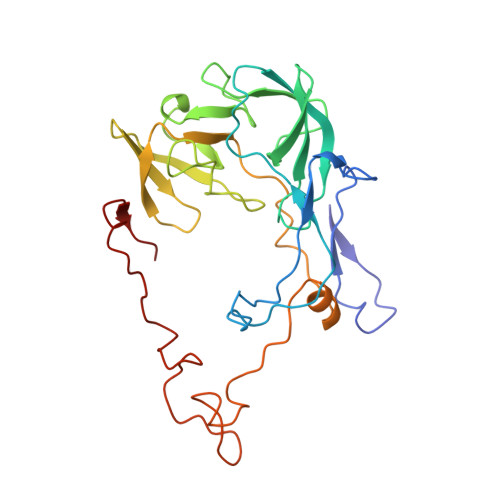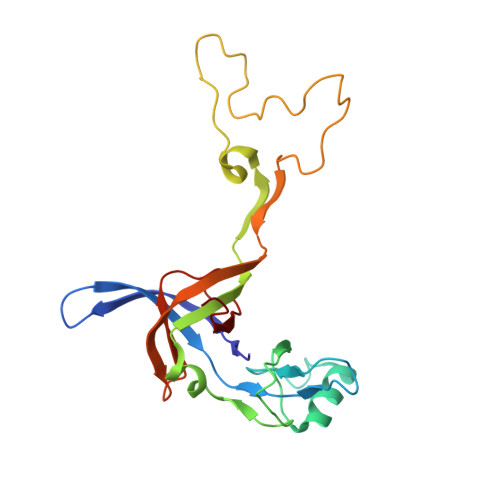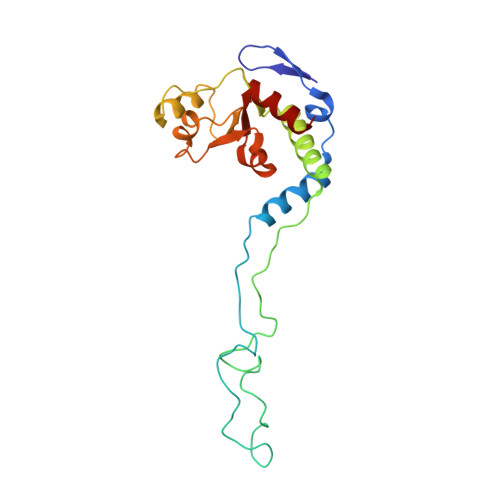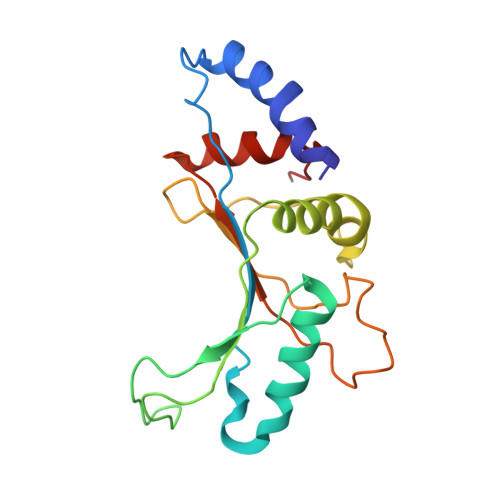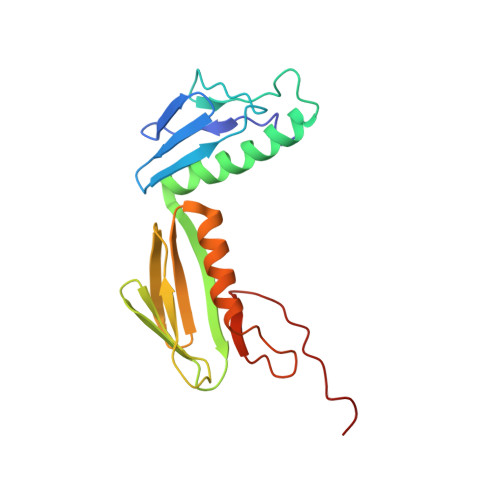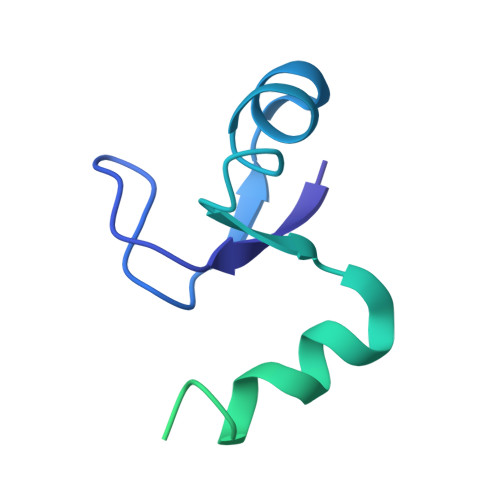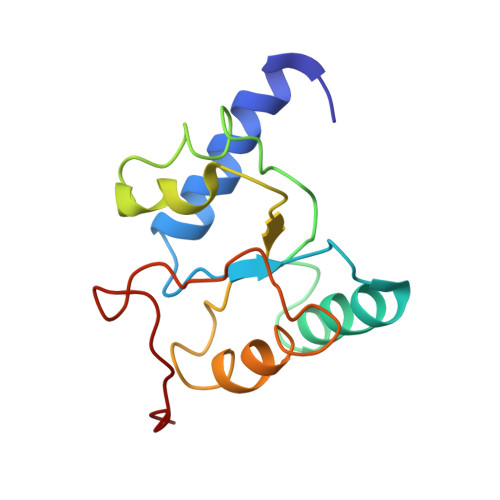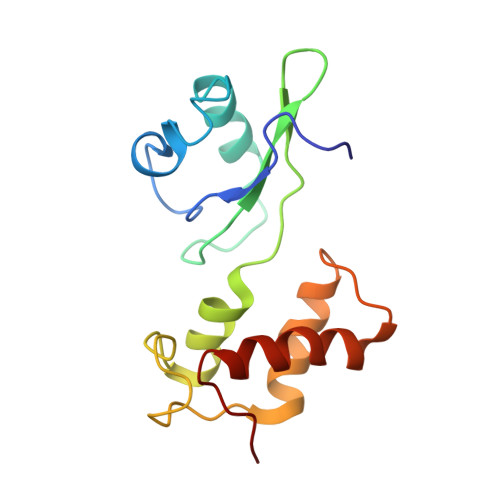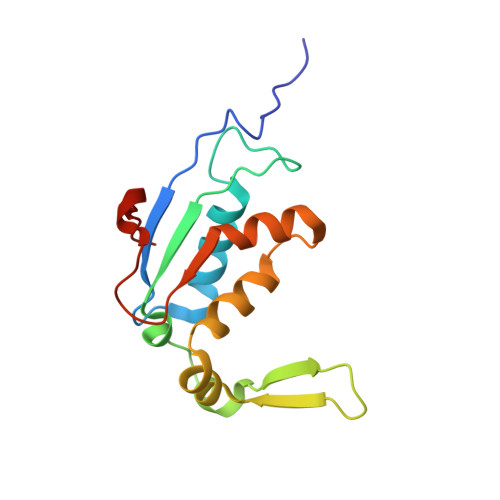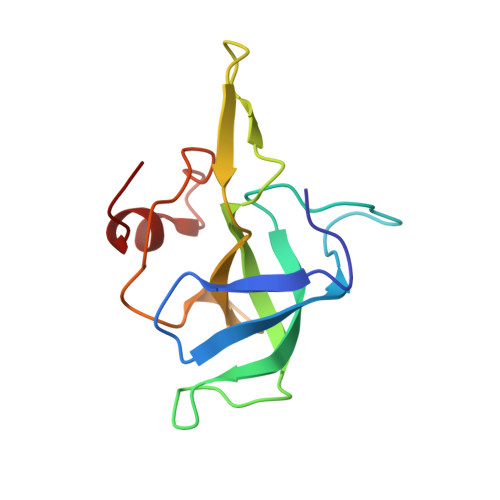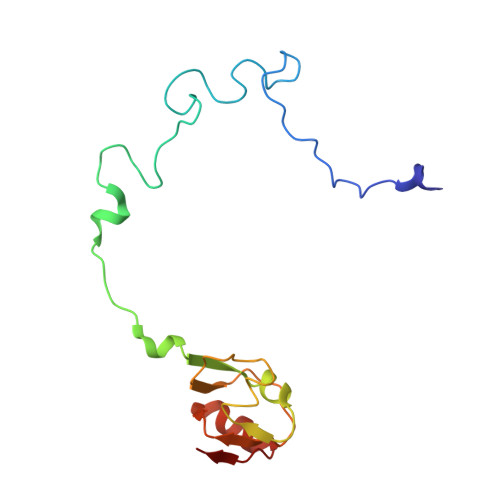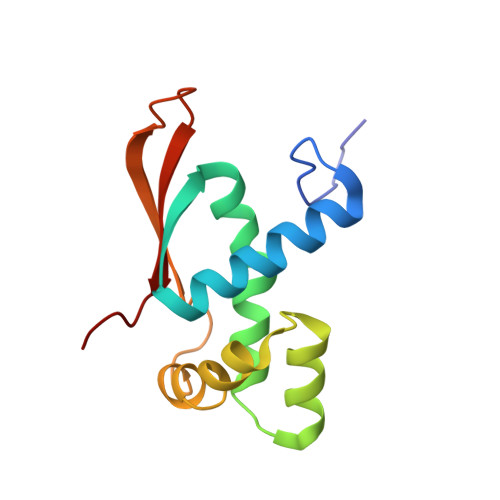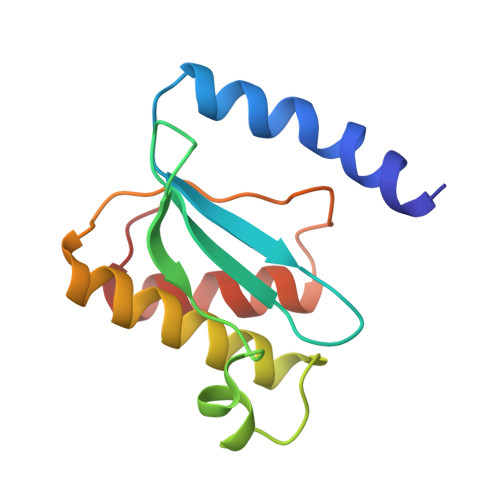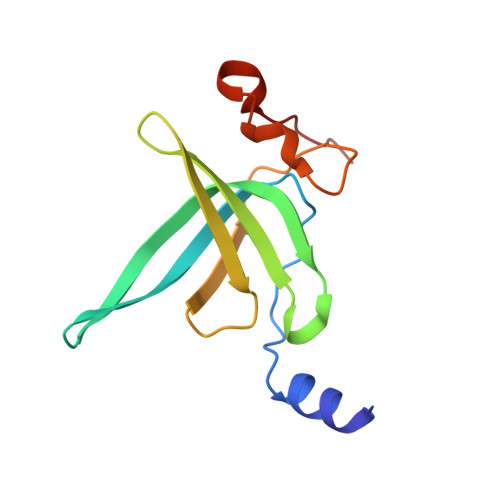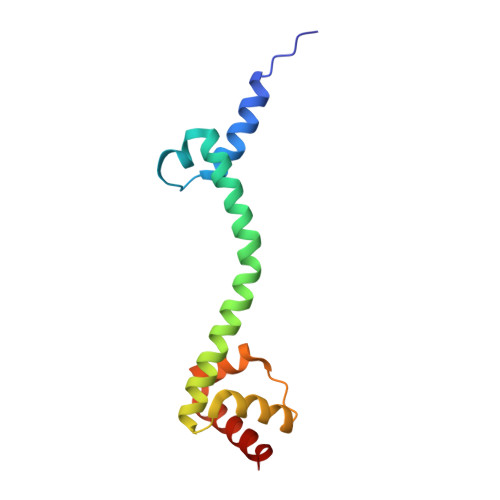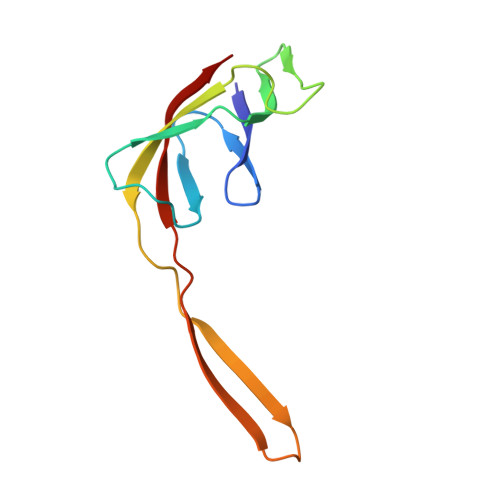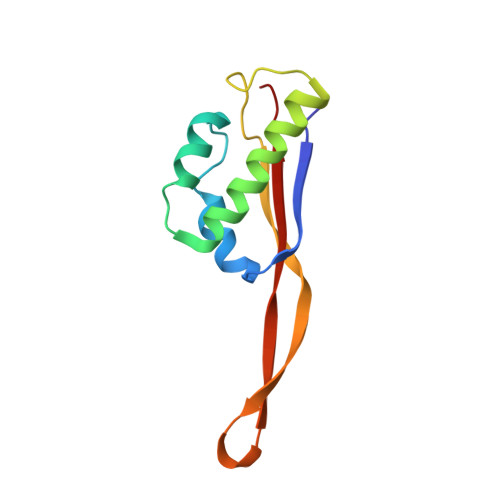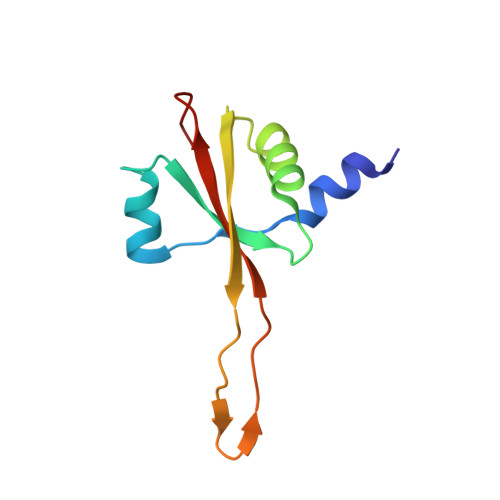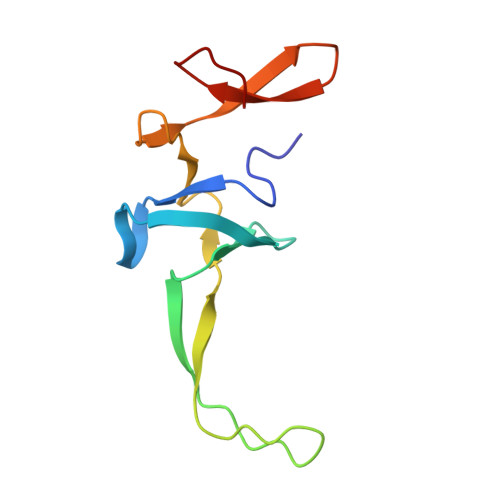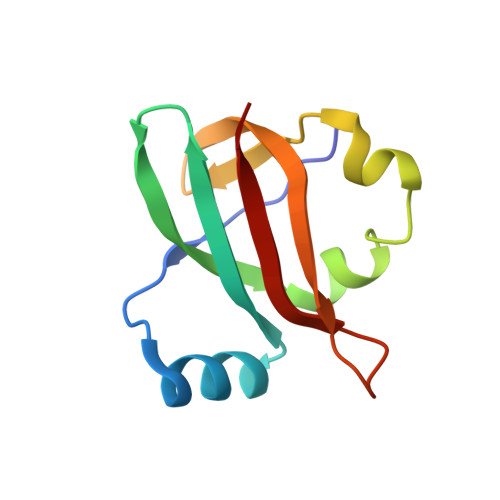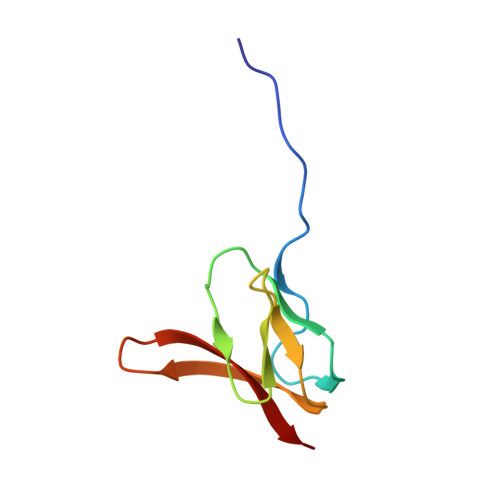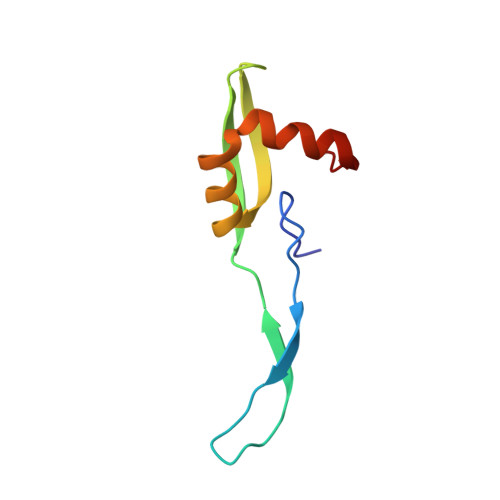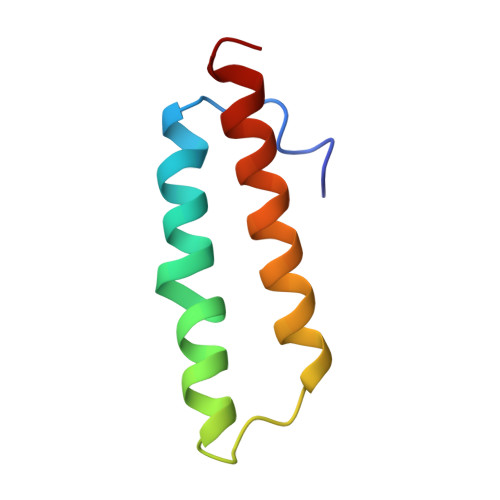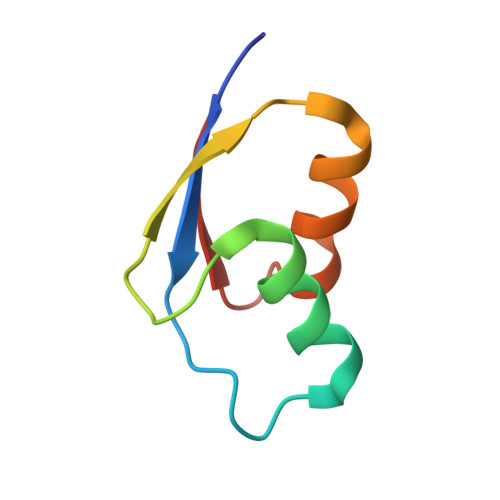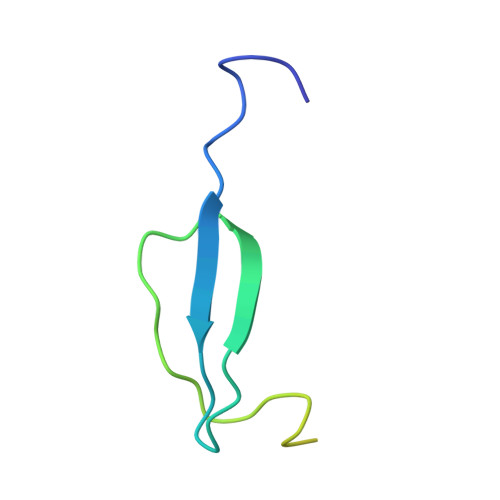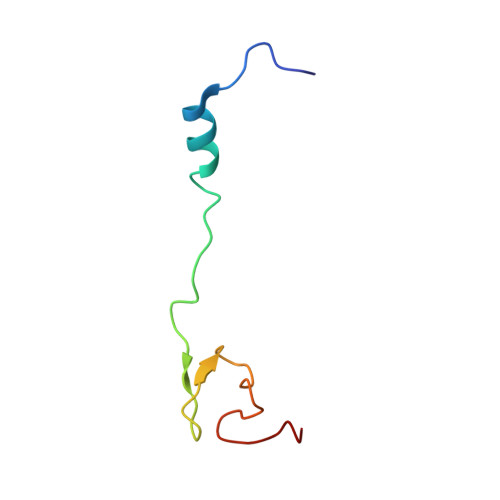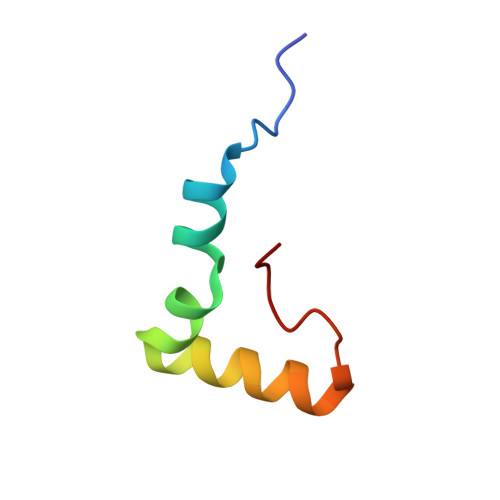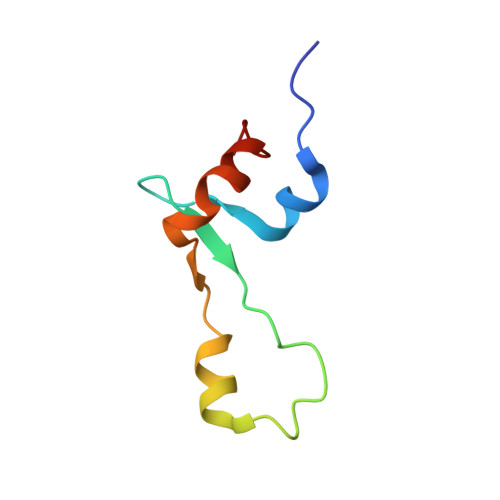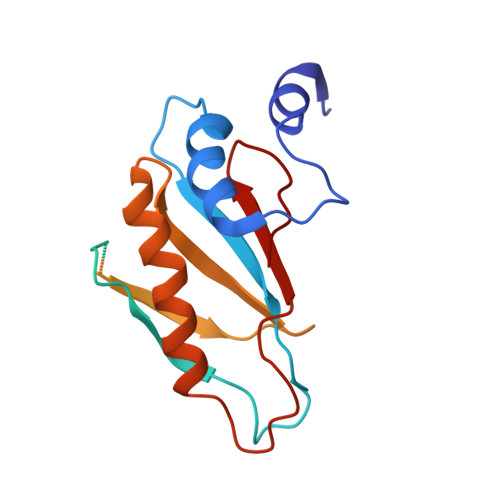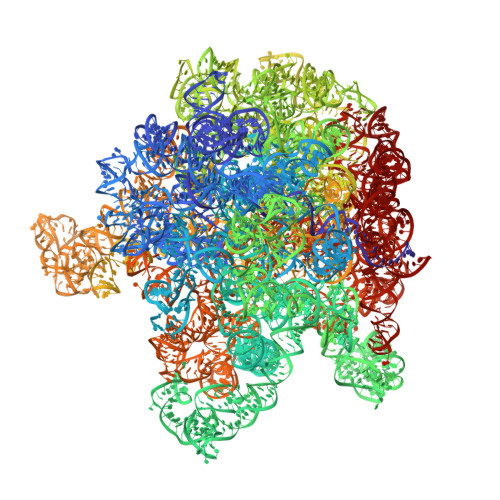Ribosome engineering reveals the importance of 5S rRNA autonomy for ribosome assembly.
Huang, S., Aleksashin, N.A., Loveland, A.B., Klepacki, D., Reier, K., Kefi, A., Szal, T., Remme, J., Jaeger, L., Vazquez-Laslop, N., Korostelev, A.A., Mankin, A.S.(2020) Nat Commun 11: 2900-2900
- PubMed: 32518240
- DOI: https://doi.org/10.1038/s41467-020-16694-8
- Primary Citation of Related Structures:
6WNT, 6WNV, 6WNW - PubMed Abstract:
5S rRNA is an indispensable component of cytoplasmic ribosomes in all species. The functions of 5S rRNA and the reasons for its evolutionary preservation as an independent molecule remain unclear. Here we used ribosome engineering to investigate whether 5S rRNA autonomy is critical for ribosome function and cell survival. By linking circularly permutated 5S rRNA with 23S rRNA we generated a bacterial strain devoid of free 5S rRNA. Viability of the engineered cells demonstrates that autonomous 5S rRNA is dispensable for cell growth under standard conditions and is unlikely to have essential functions outside the ribosome. The fully assembled ribosomes carrying 23S-5S rRNA are highly active in translation. However, the engineered cells accumulate aberrant 50S subunits unable to form stable 70S ribosomes. Cryo-EM analysis revealed a malformed peptidyl transferase center in the misassembled 50S subunits. Our results argue that the autonomy of 5S rRNA is preserved due to its role in ribosome biogenesis.
Organizational Affiliation:
Center for Biomolecular Sciences, University of Illinois at Chicago, Chicago, IL, 60607, USA.








